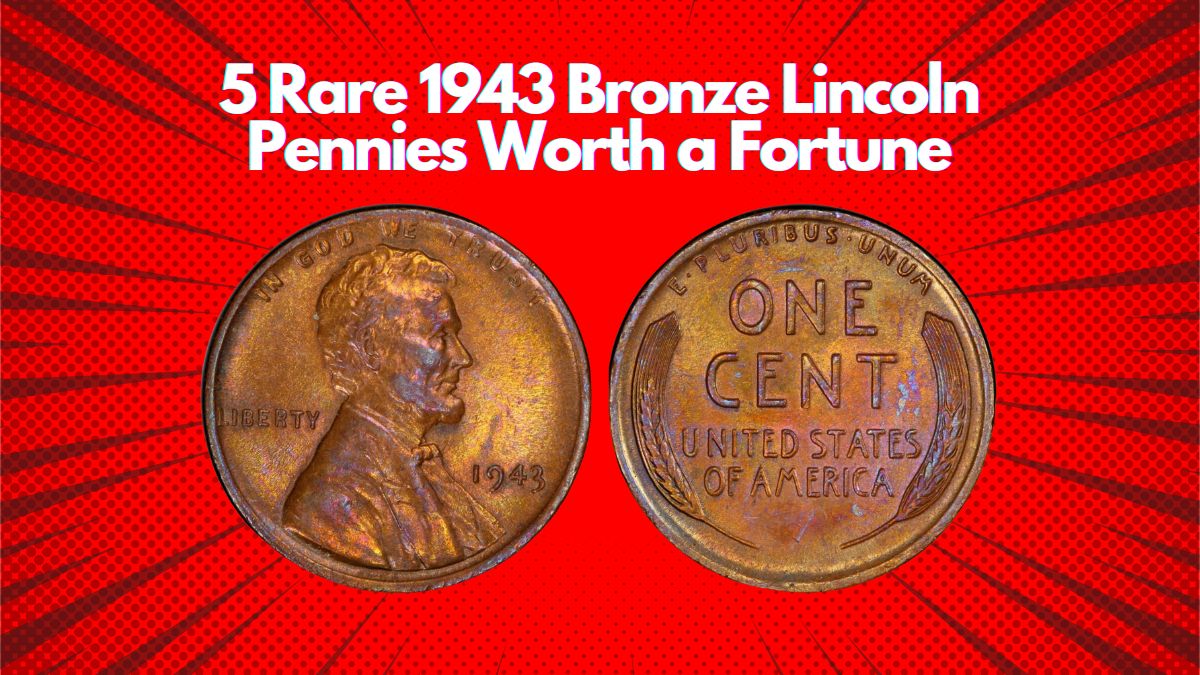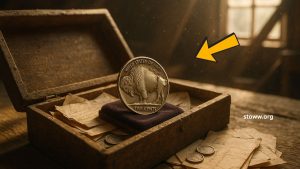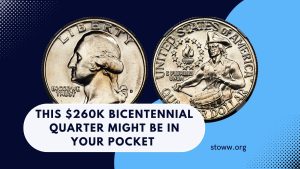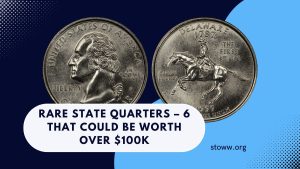The 1943 Bronze Lincoln Penny stands as a numismatic marvel, captivating collectors and investors alike. During World War II, the U.S. Mint shifted from copper to zinc-coated steel for penny production to conserve copper for military needs.
However, a few bronze planchets from 1942 were mistakenly used in 1943, resulting in extremely rare and valuable coins.
This article delves into five of the most sought-after 1943 Bronze Lincoln Pennies, their unique characteristics, and their astonishing values.
1. 1943-D Bronze Lincoln Penny
The 1943-D Bronze Lincoln Penny is a singular treasure in the coin-collecting world.
- Mint Location: Denver
- Mintage: Only one known specimen
- Distinctive Features: Olive-brown hue with a hint of crimson; exceptional mint luster highlighting Lincoln’s profile and the wheat stalks
- Notable Sale: Sold for $1.7 million in 2010, making it the most expensive Lincoln penny ever sold.
2. 1943-S Bronze Lincoln Penny
The 1943-S Bronze Lincoln Penny is another rarity that commands significant attention.
- Mint Location: San Francisco
- Mintage: Approximately six known examples
- Distinctive Features: Brown and crimson tones; sharp details, including fine strands in Lincoln’s hair and wheat stalks
- Notable Sale: Auctioned for $504,000 in 2016.
3. 1943 Bronze Lincoln Penny (Philadelphia Mint)
The 1943 Bronze Lincoln Penny from the Philadelphia Mint is among the most famous American coinage rarities.
- Mint Location: Philadelphia
- Mintage: Approximately 20 known specimens
- Distinctive Features: Deep, warm brown color with some red accents
- Notable Sale: Sold for $372,000 at auction.
4. 1943 Bronze Lincoln Penny with Die Crack Error
An error variant, the 1943 Bronze Lincoln Penny with Die Crack, adds another layer of rarity.
- Mint Location: Philadelphia
- Distinctive Features: Visible die break on the obverse side, creating a “cud” effect that alters Lincoln’s coat design
- Notable Sale: Valued at approximately $575,000; previously owned by Albert Michael Pratt, a U.S. Mint employee.
5. 1943-S Bronze Lincoln Penny (Another Specimen)
Another specimen of the 1943-S Bronze Lincoln Penny underscores its immense value.
- Mint Location: San Francisco
- Distinctive Features: Rich brown patina with well-preserved features; some red highlights in protected areas
- Notable Sale: Sold for $228,000 in January 2018.
Rare 1943 Bronze Lincoln Pennies
| Penny Variant | Mint Location | Known Specimens | Notable Sale Price | Distinctive Features |
|---|---|---|---|---|
| 1943-D Bronze Lincoln Penny | Denver | 1 | $1.7 million | Olive-brown hue; exceptional mint luster |
| 1943-S Bronze Lincoln Penny | San Francisco | ~6 | $504,000 | Brown and crimson tones; sharp details |
| 1943 Bronze Lincoln Penny (Philadelphia Mint) | Philadelphia | ~20 | $372,000 | Deep brown color with red accents |
| 1943 Bronze Lincoln Penny with Die Crack Error | Philadelphia | Unique | ~$575,000 | Visible die break on obverse; “cud” effect altering Lincoln’s coat design |
| 1943-S Bronze Lincoln Penny (Another Specimen) | San Francisco | Additional specimen | $228,000 | Rich brown patina; well-preserved features with red highlights |
Identifying a Genuine 1943 Bronze Lincoln Penny
To determine if you possess one of these rare coins:
- Date Verification: Ensure the coin is dated 1943.
- Magnet Test: Use a magnet; genuine bronze pennies are non-magnetic, unlike their steel counterparts.
- Weight Check: A true bronze penny weighs approximately 3.11 grams, whereas steel pennies weigh about 2.7 grams.
- Visual Inspection: Look for a reddish-brown color indicative of copper content.
FAQs
How did the 1943 Bronze Lincoln Pennies come into existence?
During World War II, the U.S. Mint switched to steel planchets to conserve copper. However, some leftover bronze planchets from 1942 were mistakenly used in 1943, resulting in these rare coins.
Why are these pennies so valuable?
Their value stems from their rarity, historical significance, and the unique minting error that led to their creation.
How can I authenticate a 1943 Bronze Lincoln Penny?
Conduct the magnet and weight tests mentioned above. For definitive authentication, consult a professional coin grading service.



